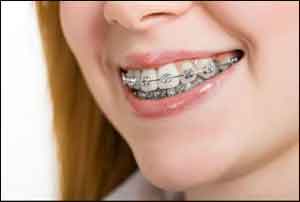- Home
- Editorial
- News
- Practice Guidelines
- Anesthesiology Guidelines
- Cancer Guidelines
- Cardiac Sciences Guidelines
- Critical Care Guidelines
- Dentistry Guidelines
- Dermatology Guidelines
- Diabetes and Endo Guidelines
- Diagnostics Guidelines
- ENT Guidelines
- Featured Practice Guidelines
- Gastroenterology Guidelines
- Geriatrics Guidelines
- Medicine Guidelines
- Nephrology Guidelines
- Neurosciences Guidelines
- Obs and Gynae Guidelines
- Ophthalmology Guidelines
- Orthopaedics Guidelines
- Paediatrics Guidelines
- Psychiatry Guidelines
- Pulmonology Guidelines
- Radiology Guidelines
- Surgery Guidelines
- Urology Guidelines
Methodologies in orthodontic pain management: A review

Patients experience pain and discomfort during active orthodontic treatment with fixed appliances. It can vary from person to person and is influenced by certain factors such as age, gender, previous pain experiences, stress or anxiety, and type of appliance.
The objective of this literature review was to discuss conventional versus recently introduced treatment modalities used in pain management for orthodontic patients.
According to the reviewed articles, both pharmacological and non-pharmacological methods were introduced in orthodontic pain management. However, orthodontists must use their best professional judgment to assess each case individually and select an appropriate treatment modality based on pain threshold level of an individual.
Key Points :
- Effective orthodontist-patient communication and targeted nutritional guidance may help in preventing pain and discomfort experienced by the patients to some extent.
- However, based on the available literature, analgesics remained the effective and routine methodology of pain management.
- Some clinicians supported that NSAIDs such as Ibuprofen had no impact on tooth movements as they were administered in lower doses and for a shorter duration. Hence, Ibuprofen was considered a safe and effective drug compared to other NSAIDs. On the contrary, other authors declared a delay in orthodontic tooth movements as a result of NSAID intake.
- Another investigation supported that paracetamol (acetaminophen) was considered the safest NSAID that had no influence on the range of tooth movements as well as root resorption. However, much of what has been published on this subject is still controversial.
- Moreover, while prescribing analgesics, orthodontists must be aware of the pharmacological action as well as the pros and cons related to each drug.
- Nevertheless, pain management is a complex phenomenon. Therefore, further investigations combining different methods of orthodontic pain control with appropriate study designs and large sample sizes are required to improve the quality of evidence.
For more details click on the link: http://dx.doi.org/10.2174/1874210601711010492

Disclaimer: This site is primarily intended for healthcare professionals. Any content/information on this website does not replace the advice of medical and/or health professionals and should not be construed as medical/diagnostic advice/endorsement or prescription. Use of this site is subject to our terms of use, privacy policy, advertisement policy. © 2020 Minerva Medical Treatment Pvt Ltd